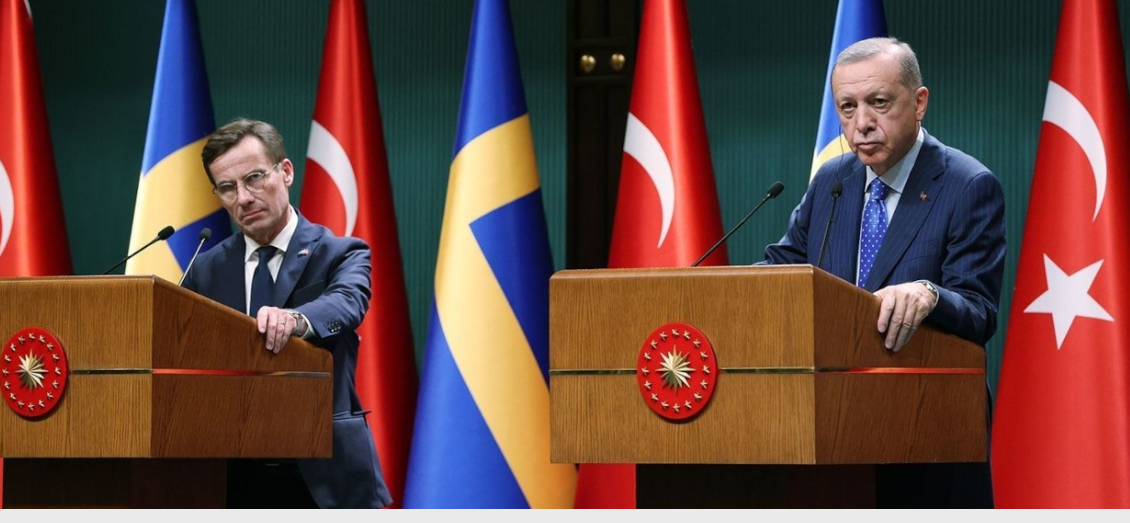“Turkish parliament won’t speed up Sweden’s NATO bid” claims a news article in Reuters, quoting the chairman of the foreign affairs committee, former VP Mr Oktay. Hungary, too, is still to be persuaded to have Swedish membership ratified. For the Turkish parliament, the window of opportunity to vote on ratification is very narrow, because according to its by-laws, the general assembly must prioritize 2024 budget discussions, during which time no other legislation may be brought to floor. Delays in accepting Sweden to NATO disrupts its planning process and it is certain that US Congress will not approve the $20 bn F-16 sale to Turkey before ratification.
President Tayyip Erdogan submitted the ratification bill for Sweden’s NATO membership bid to parliament last month, a move welcomed by Stockholm as it would clear the way for it to join the Western defence alliance.
NATO Secretary General Jens Stoltenberg has said he wants a “speedy vote” by Turkey’s parliament and that the process was “going well”. But parliament’s foreign affairs committee chair Fuat Oktay said Turkey was in no hurry.
“Sweden’s NATO membership is just one of the international agreements on our agenda waiting for ratification,” Oktay told a meeting of lawmakers. “We will discuss it when the time comes … within the framework of our own priorities… What is urgent for others is not necessarily urgent for (us).”
The Sweden NATO membership bill must be approved by the committee before a vote by the full parliament, at which point Erdogan would sign it into law.
It is inconceivable for the AKP-MHP majority in the Turkish Grand Assembly to strike down legislation sent to the floor by Erdogan. Then, what is Erdogan’s game plan and how further delays can affect Turkey’s relations with US and NATO? Dr Paul Levin of the University of Stockholm Turkish Research Institute tries to solve the puzzle:
‘UNCERTAINTY ABOUT SWEDEN CAUSES PROBLEMS IN DEFENSE PLANNING’
According to Levin, the increasing discomfort and pressure of NATO countries on Turkey was effective in President Erdogan’s sending Sweden’s NATO accession protocol to the parliament. Levin explained the approach of NATO countries as follows:
At the NATO Defense Ministers meeting held on October 11-12, a week before Erdogan’s statement, there was almost unanimous support for Sweden’s membership, but there was also a reference to the urgency of the situation. From NATO’s perspective; “The institution is in the midst of a restructuring, and not knowing when or whether Sweden will become a member causes a number of problems in terms of defense planning.”
THE WAR IN GAZA MAY HAVE INCREASED TURKEY’S SENSE OF URGENTITY’
“From the US perspective, although I am not sure, I think there may have been pressure from there behind closed doors,” said Levin, adding, “But there was definitely no desire to fulfill Turkey’s additional demands.”
Recalling the Israeli-Palestinian conflict that have been going on for 27 days and Turkey’s request for F-16 fighter jets and modernization kits from the USA, Levin said:
“Another possible explanation relates to the war in Gaza. The war may have been effective in many ways. The threat of regional escalation of the conflict in Gaza may have increased Ankara’s sense of urgency to upgrade the weapons in its air force. So, they may want to make the F-16 deal before long. “Turkey also takes the following risk: If it continues to resist, the USA will send F-35s, which are more advanced, 5th generation warplanes, to Greece, while Turkey will remain without even purchasing an F-16.”
‘PERHAPS THE APPROVAL GIVEN TO SWEDEN HAS GIVEN SPACE FOR THIS’
Levin pointed out that President Erdoğan adopted a more balanced approach to the Israeli-Palestinian conflict, surprising many observers at first. Dr. Paul Levin pointed out that this situation has changed in recent days, especially at the pro-HAMAS rally on last Saturday. Stating that there is great anger in Turkey regarding Gaza and that Erdoğan may have tried to take advantage of this, Levin said, “But this brings with it a price in terms of international relations,” and made the following assessment:
“The statements he made at the rally were very provocative in terms of the criticism he attracted. This critical and combative discourse was not only against Israel, but also against the West, so to speak, against the Christian world. This cost him his other allies.
‘SUCH AN ARGUMENT WOULD NOT BE CREDİBLE FOR THE USA’
According to Levin, who shared his predictions about how the process in the parliament, where Sweden’s application for NATO membership will be discussed and voted on, could progress, he said, “If there are other provocations such as burning the Quran or pro-PKK demonstrations by people who do not want NATO membership in Sweden, this will not be approved by the İYİ Party and MHP.” It can make it difficult.”
Stating that the lack of MHP’s approval may prevent the protocol from passing the parliament, Levin said, “However, most Turkish experts I talked to also say that if Erdogan really wants to pass the protocol, he can be sure that he will pass it. “Erdogan has such control over his own party and MHP,” he said.
‘THERE ARE DEMANDS IN CONGRESS TO BE HARDER AGAINST ERDOĞAN’
Paul Levin pointed out that the possibility of the Israel-Palestine conflict causing a “growing rift” between Turkey and the USA could also hinder Sweden’s NATO process, adding that Congressional approval was needed for the sale of F-16s, and some Congress members criticized Erdoğan’s speech and said: He reminded that he requested the Biden administration to be tougher on Erdogan in response to his praising Hamas and calling Israel a terrorist.
Follow our English language YouTube videos @ REAL TURKEY: https://www.youtube.com/channel/UCKpFJB4GFiNkhmpVZQ_d9Rg
And content at Twitter: @AtillaEng
Facebook: Real Turkey Channel: https://www.facebook.com/realturkeychannel/
